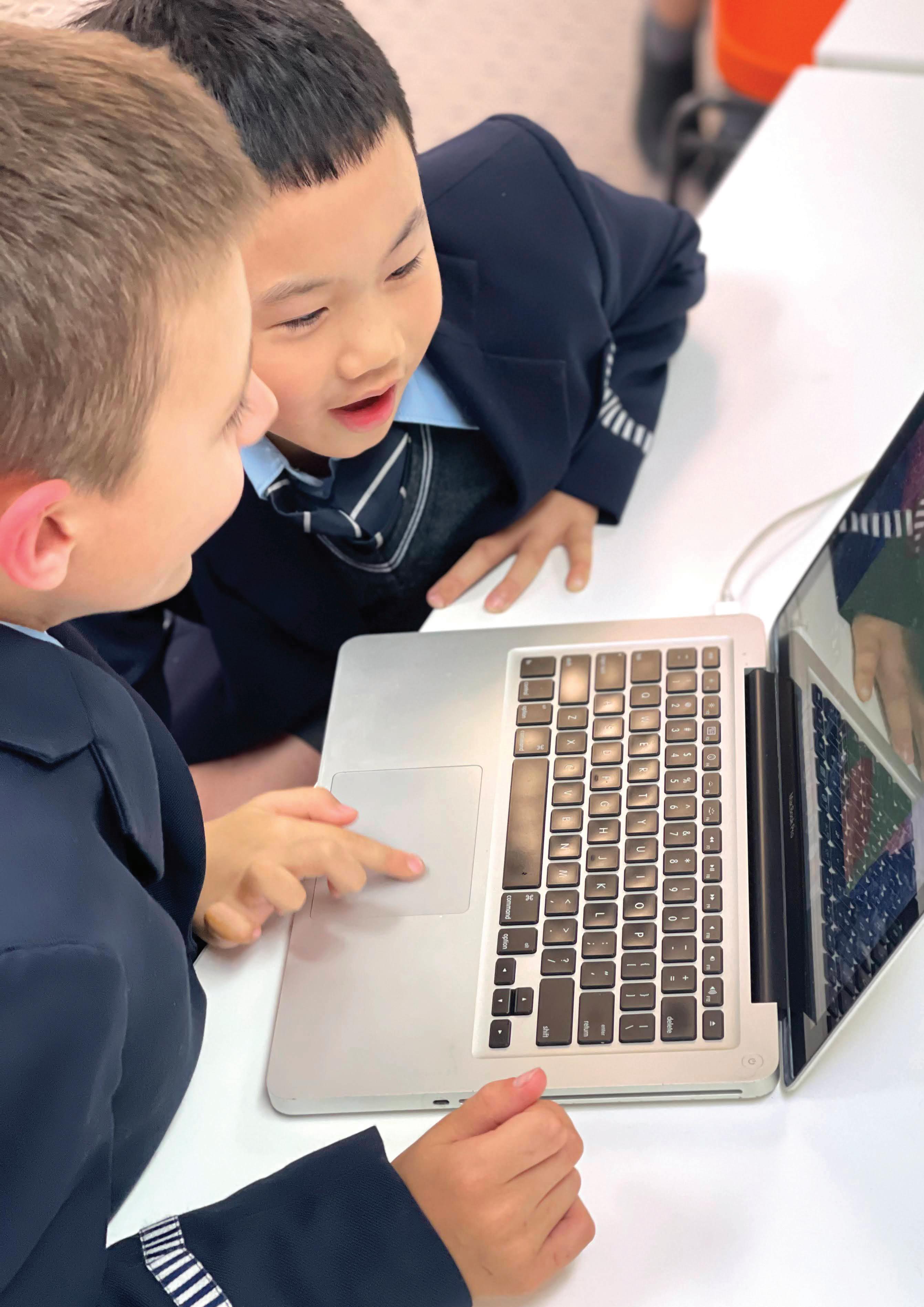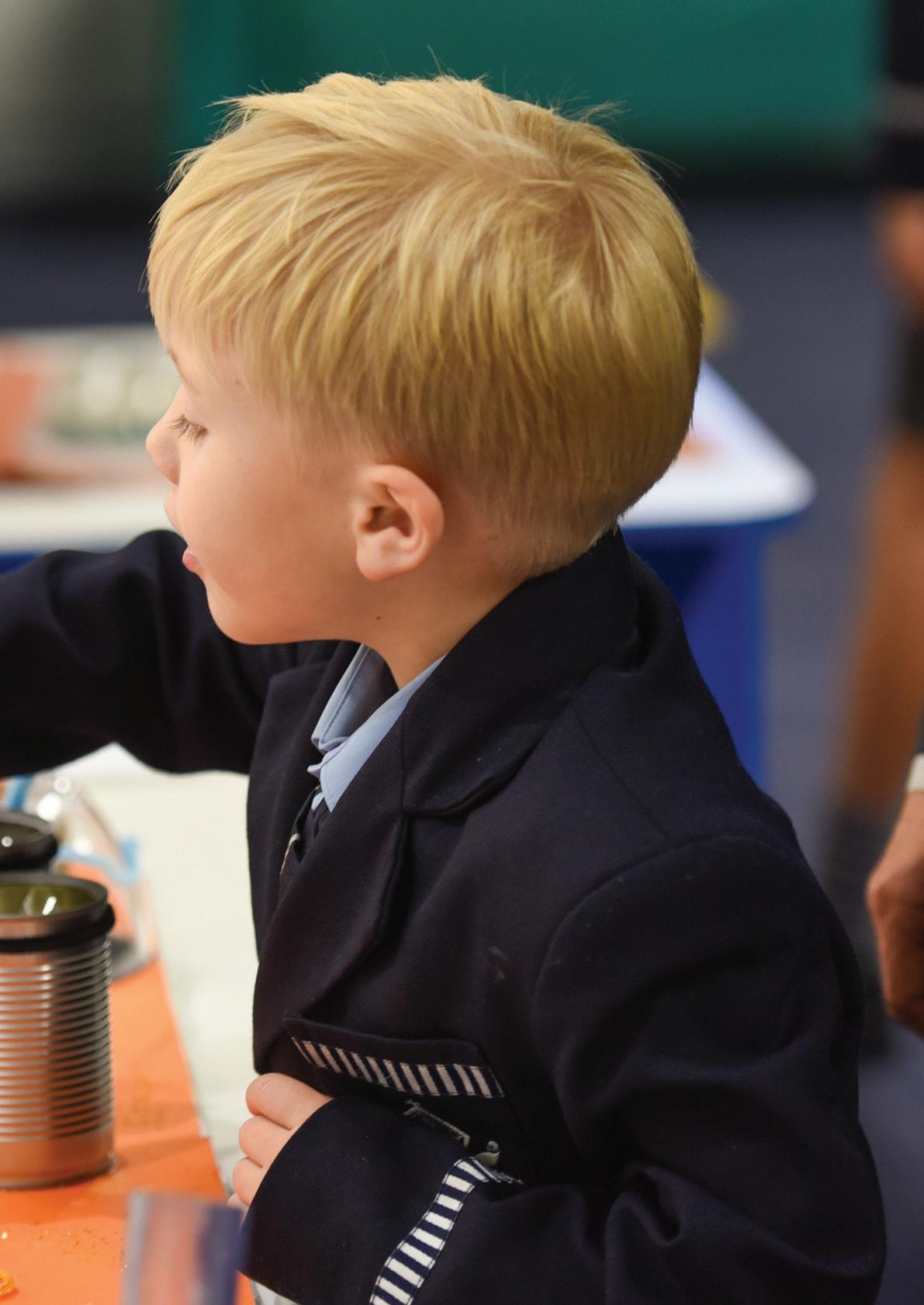Wellbeing and Learning Frameworks






We aspire for every person in our community to be healthy in all dimensions. Our comprehensive approach is built on the knowledge that as individuals we learn and grow best when we are safe, healthy and connected. Supported by our School Values, our wellbeing framework aims to promote positive and productive relationships within an inclusive learning community. We believe a healthy community is a serving community, where we find joy in living a life beyond ourselves.
Learning at Prep is who we are and what we do. We follow six guiding principles to establish a rigorous framework for all teaching and learning. Through promoting wellbeing, supporting evidence-based practice, using data and assessments to inform, maintaining explicit teaching, encouraging integration, investigation, and collaboration, we ensure students are developing learner attributes that will inspire their learning journey.

We provide a holistic view of wellbeing that embraces a multi-dimensional approach to the health of our students so that they can flourish.
Contributing to community, and encouraging connection with others, understanding that positive relationships are good for our wellbeing.

Discovering meaning and purpose in life through the lens of the Christian faith. Actions become more consistent with beliefs and values.
Engaging with the opportunities to be active, as healthy living can lead to the psychological benefits of enhanced self-esteem.








Embracing what creation has to offer, along with our personal surroundings.
Feeling loved and respected for who we are and the difference we can make to the community. Finding joy in living a life beyond ourselves.
Learning how to think critically and creatively: establishing the foundations of lifelong learning habits for staff, students, and families.
n Student Leadership and Agency
n Behaviour Support
n Pastoral Care
n Collaborative and Proactive Solutions model (CPS)
Student Wellbeing Involves:
n Social and Emotional Learning (SEL) and PDHPE programs
n Student Seminars
n School Counselling, social skills groups and support programs
n Foundations for the Future Program
n Commitment to partnership and collaboration in supporting students
n High quality evidencebased resources
n Empowering Parents Seminars
n Clear communication
n Targeted support groups to upskill students eg (Chill Zone, Social Skills Group, Cool Kids, Kids Matter)
• Understanding emotions
• PDHPE
EARLY STAGE 1 (EE-Kindergarten)
STAGE 1 (Years 1-2)
• Introducing independence
• How can I serve others?
• What are the School Values?
• Managing emotions
• Developing independence
• Who can we serve?
• The School Values and Me
• GoodCHAP Service Learning (Class-based)
• Social, Emotional Learning (SEL - Positive Education Enhanced Curriculum)
• PDHPE
• GoodCHAP Service Learning (Class-based)
• SEL
• PDHPE
STAGE 2 (Years 3-4)
• Emotional literacy
• Growing independence
• Why do we serve?
• Applying the School Values
• Life Education – Healthy Harold
• GoodCHAP Service Learning (Class and small-group based)
• SEL
• Outdoor Education
• PDHPE
STAGE 3 (Years 5-6)
• Emotional regulation
• Independence in practice
• Service in action
• Leading with the School Values
• Life Education – Healthy Harold
• GoodCHAP Service Learning (Class and small-group based)
• SEL
• Outdoor Education
• Leadership and Transition

We educate a community of learners who are adaptive, engaged and autonomous, through evidence-based approaches that inspire a lifelong love of learning.
We create assessment capable learners by using intentional assessments and analysing student data to inform our teaching.
We use research based, high impact teaching strategies to support students to grow and thrive in their learning.


We promote student agency through supporting student voice and establishing inclusive partnerships between home and school.







We deliver adaptive curriculum to encourage deep thinking, by engaging and empowering students to be 21st Century learners.
We take a welfare oriented approach towards our students so they feel safe, connected, cared for and ready to learn.
We establish a culture of high expectations where students master knowledge, skills and understanding through learning intentions, success criteria and reflecting on individualised learning goals.
We are prepared intellectually, physically, socially, emotionally and spiritually, to embody a well rounded, balanced foundation for the future as informed and active citizens.
We are innovative, creating original thoughts supported by action that seeks excellence and to improve our world.
We are curious about the world, developing a lifelong love of learning through exploration, questioning, creativity and critical thinking.
We are collaborative, contributing our unique strengths in service of each other and the wider community through respectful interactions, positive relationships and varied perspectives.


Our six learning pillars are applied in our learning environments to support students and teachers. Each pillar also enables students to embrace our key learner attributes - prepared, innovative, curious and collaborative.
• Feel safe, connected, loved and ready to learn
• Show grit, persistence and determination
• Courageous pursuit of knowledge
• Compassionate and supportive of peers
• Develop positive relationships based on mutual trust and respect
• Welfare oriented approach towards students’ learning capability
• Encourage growth mindset
• School values embedded in all learning environments
• Social and emotional learning used to develop social capabilities
• Wellbeing skills taught proactively and collaboratively with students
• Individual learning goals
• Strategic growth in knowledge, skills and understanding
• Develop higher order thinking skills
• Engage with feedback and visible learning strategies
• Research based high impact teaching strategies
• Engage in reflective practice to evaluate impact on student learning
• Engage in deliberate and purposeful professional development
• Assessment capable and confident learners
• Set own learning goals
• Adjust learning goals based on feedback
• Use intentional, evidence-based, dynamic assessments
• Analyse student data to inform teaching and learning
• Clear communication of lesson intentions and real-world connections
• Student ownership of learning progression
• Transformational use of technology and resources
• Differentiation of content, process, product or environment
• Flexible grouping according to need
• Co-create success criteria
• Create school-wide priorities in response to student data
• Provide valuable feedback
• Frequent conferencing and goal setting to guide learning
• Well organised ways of thinking, understanding and doing
• Understand learning goals and success criteria
• Design rigorous lesson sequences
• Identify the breadth, extent, and range of syllabus outcomes to move student learning forward
• Solidify foundational skills to encourage critical and creative thinking
• Deep learning to promote understanding of complex concepts
• Growing ownership and agency
• Future proofing knowledge and skills
• Engaged and empowered learners
• Targeted teaching in response to student data
• Delivery of evidence-based programs
• Master knowledge, skills and understanding before moving forward
• Lessons follow sequence of modelled, guided, and independent action
• Reflection, retrieval and multiple exposure of content
• Culture of high expectations
• Deliver integrated, adaptive and flexible curriculum to promote depth of understanding
• Encourage big ideas and reflective thinkers
• Consider multiple perspectives
• Research and explore real-world learning
• Inclusive towards all learners
• Respectful communicators
• Intrinsically motivated to create shared understanding
• Strong student teacher partnership
• Responsive to real-world events and issues
• Value shared ideas of evidencebased practices, knowledge and problem solving
• Inspire collegial discussion and evolution in professional development
• Provide opportunities to demonstrate learning
• Joint construction of learning goals
• Opportunities for student centred and student directed learning
• Establish a positive culture that values community

is who we are and what we do.

